This is your Travel Guide to Singapore — the hub for innovation and responsible development. They are one of the biggest advocates for environmentally conscious and sustainable practices. Despite its small size, Singapore is one of the biggest players in tourism in Southeast Asia. Simply because they can actually walk the talk with their thoughtfully designed infrastructure where modern meets nature.
When you think of Singapore, think of amazing culinary Singapore experiences, this country is near Malaysia, Thailand, Cambodia, Vietnam, and Indonesia. They’ve had strong influences from Chinese and Southeast Asian culture for maximum flavour medleys. Not to mention how Singapore is just the best place for shopping and theme park lovers. To make the most of your trip, here’s your Singapore Travel Guide to explore this amazing country. Do check out AFC Holidays Singapore Tours to get started planning your trip.
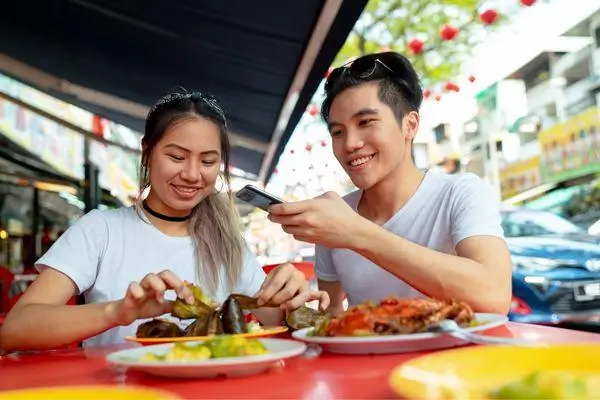
Language
There are four official languages in Singapore– English, Malay, Chinese Languages (Especially Mandarin), and Tamil. The majority of Singaporeans are fluent English speakers, especially the younger generations. The main language is also English, it is used as the main language in schools, businesses, and the government. Hence, tourists will definitely have an easy time in this country.
Among the other languages, Mandarin is spoken by 35% of the population, adding 13% that speak other Chinese Dialects like Hokkien, Hainanese, and Cantonese. Malay is next, spoken by 10% of the population. Malay speakers living in Singapore come with no surprise being that Malaysia is a very close neighbour to Singapore.
Lastly, 9.2% of the population are actually Indians coming from Tamil Nadu. This being the case, Singapore has officially added Tamil to their list of official languages. There will also be a portion that may speak Telugu, Punjabi, Hindi, Malayalam, Gujarati, Sindhi, and Kannada.
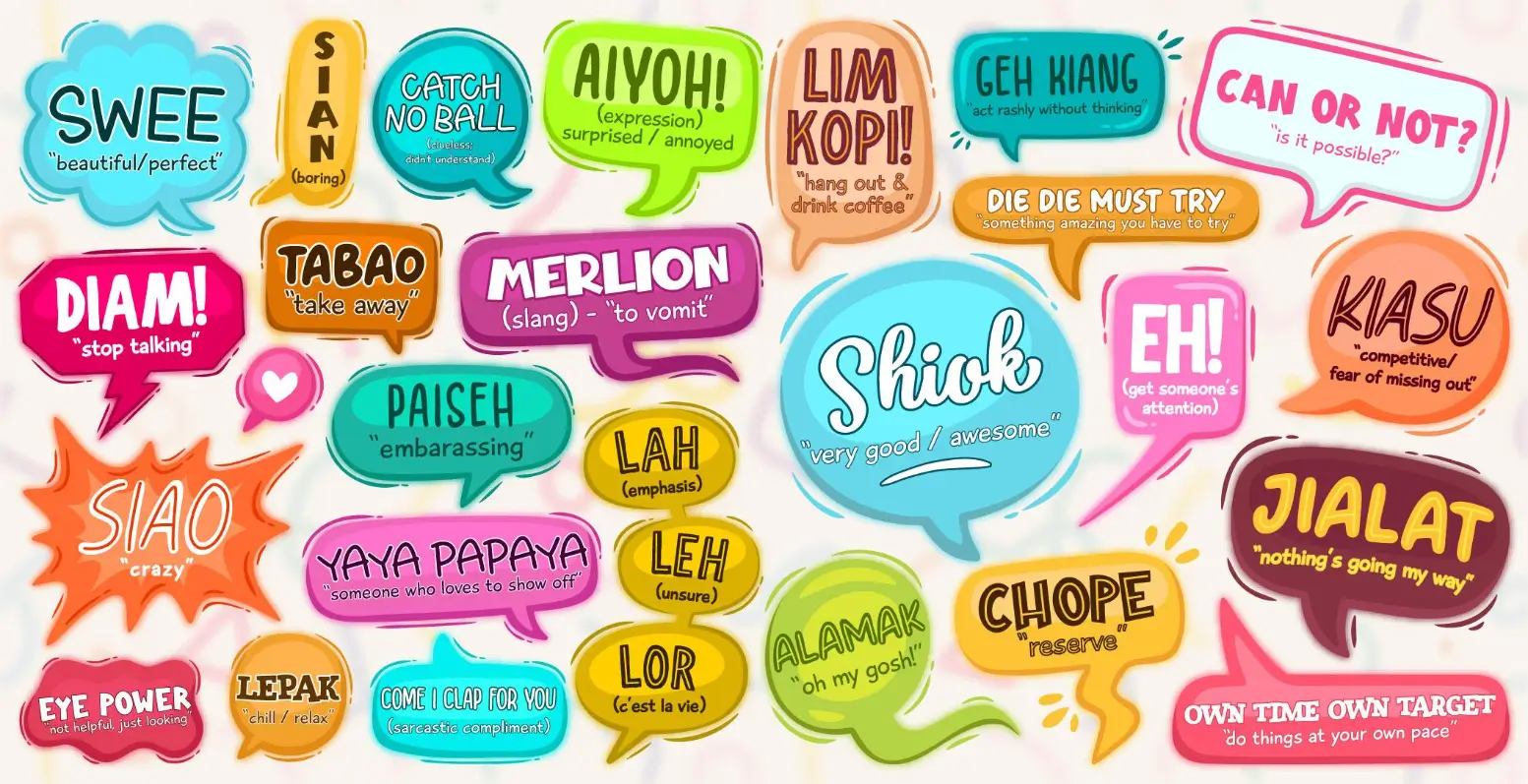
An interesting fact about the Singaporean language is the growing use of “Singlish” in everyday conversations. Their heavily-diverse culture and population gave birth to a new form of everyday language, built off of the English language, meshed with words from Hokkien, Tamil, and Malay languages. You may heavily encounter the active use of Singlish when you stumble upon Singaporean-creator content on social media.
Safely Traveling in Singapore
If you’re thinking of visiting Singapore, then you will have very few safety worries. Singapore is generally one of the cleanest and safest places to visit in Southeast Asia. It is fairly easy and safe to explore even for women. The crime rate for serious cases is very low.
However, it is quite inevitable to deal with some petty crimes like theft, so be wary of your valuable and responsible with your travel documents when you’re travelling.
Becoming a clean and safe city is not an easy feat, it comes with a lot of strict regulations that are closely observed by the locals as well as tourists. With that in mind, be advised on responsible practices in Singapore
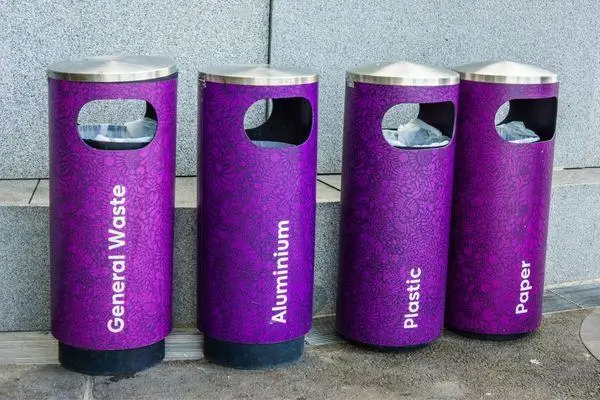
• Walk or Stand in the proper designated places in Singapore, there are bike paths that may compromise your safety as well as the riders.
• Observe as the locals do, and be disciplined when trying to access city attractions, be orderly when queuing for something.
• Singapore’s tap water is safe for drinking.
• The Singaporean government is particular about observing cleanliness, so follow the local customs for cleanliness:
• Littering fines can be as high as USD 1,000 with community service penalties. Throw any waste in designated areas.
• No Chewing Gums. They are illegal to import or sell in the city.
• No eating, drinking or smoking in public transportations.
• Similar to any other nation, there are strict rules against the following:
• No Jaywalking
•No Smoking outside designated areas. We advise against bringing cigarettes into Singapore, tobacco products and e-cigarettes are considered contraband and incur a high penalty. These products are being actively taxed in Singapore so that fewer people would smoke cigarettes. It is best to avoid the higher penalty and just buy it at a slightly more expensive rate in the city.
•Drugs are strictly prohibited
•There are restrictions in place for Alcohol consumption. There are no Alcoholic drinks sold after 10:30 pm, and no drinking alcohol in public after 10:30 unless you have a special permit.
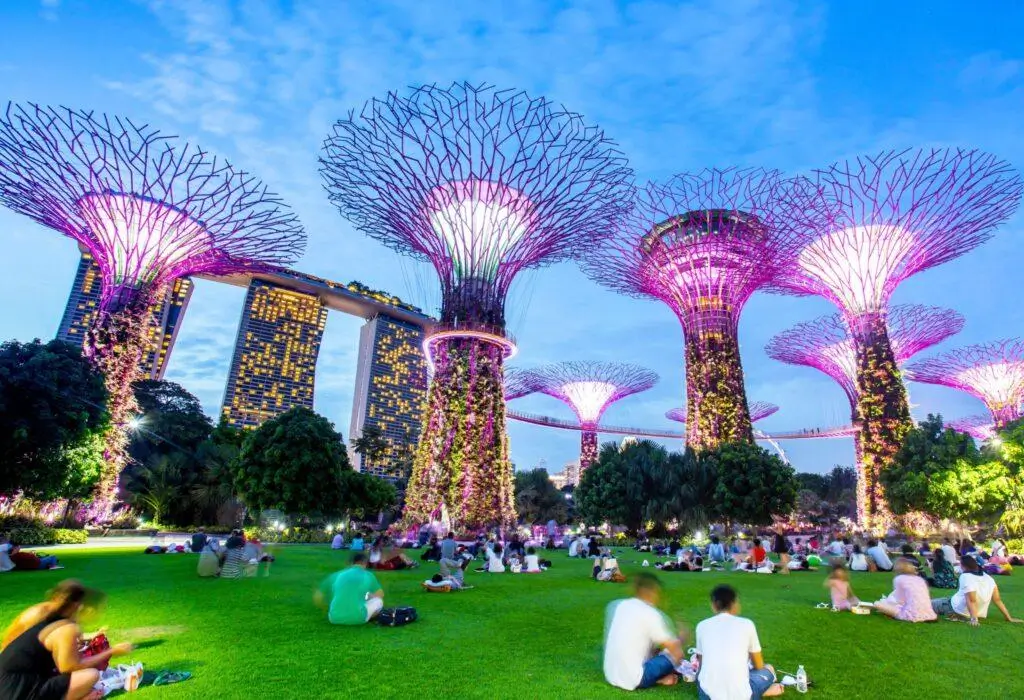
What Weather to Expect When Packing
Singapore’s climate is generally tropical and humid with chances of rain. So definitely pack light clothes and check the weather during your travel period so that you may consider bringing an umbrella with you.
Singapore Religion
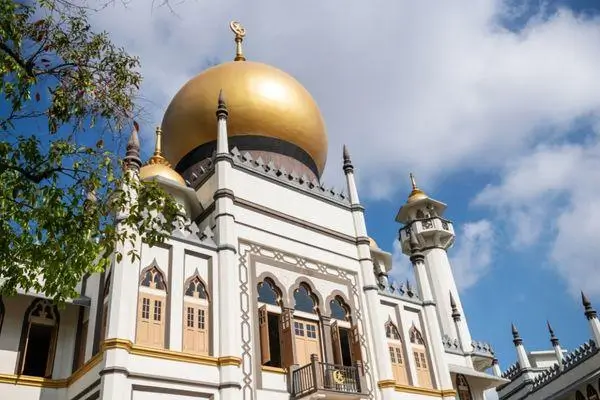
MAJORITY BUDDHISTS (33.2% of the population). However, just like the language, there are many other religions being practised in Singapore. 18% of the population are Christians, 14% Muslims, 10% Taoists, and 5% Hindu. With that in mind, travellers visiting Singapore should practice respectful behaviours in and around places of worship.
Of the portion left in statistics, there are those that identify with having no religion and among other minorities.
Currency
SINGAPORE DOLLAR (SGD)
The Singapore Dollar, also abbreviated as S$ has been in circulation since the nation’s Independence in 1967.
While credit cards may be widely accepted in Singapore, if you’re looking to enjoy a more local experience of the country, especially when venturing out to hawker centres, then cash may be more widely accepted and easier when making transactions.
There will be loads of reputable money exchange establishments in Singapore from Changi Airport itself to any shopping centres in Singapore. You may have to shop around for the best rates and bargain a bit but the exchange rates are generally reasonable for common currencies like USD or EUR.
Should you bargain?
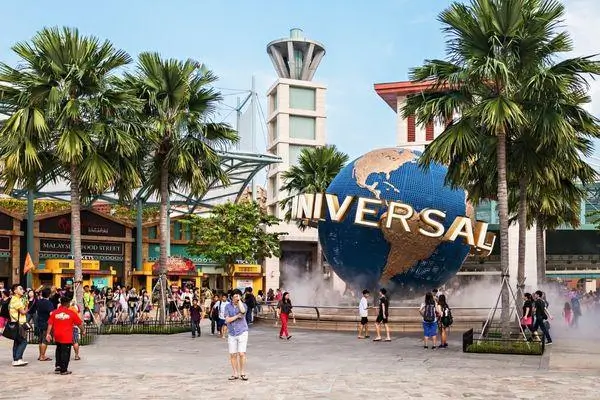
Bargaining is definitely not a daily practice in Singapore. Not even in Hawker Centres because the vendors try to maintain reasonably-priced menu items. If the items in stores have a price tag attached to them, you might not get much luck negotiating for them. If you’re buying a big quantity of a certain item, then you might have a chance to get it at an off-price, but definitely don’t slash the price down 50% as it may be deemed disrespectful.
Should you leave a tip?
Tipping is not a customary practice in Singapore. The final bill includes a 10% Service charge. Extra tips from tourists are definitely appreciated. Don’t hesitate to leave tips if desired, if you’re happy with the service.
How much a day Travelling in Singapore?
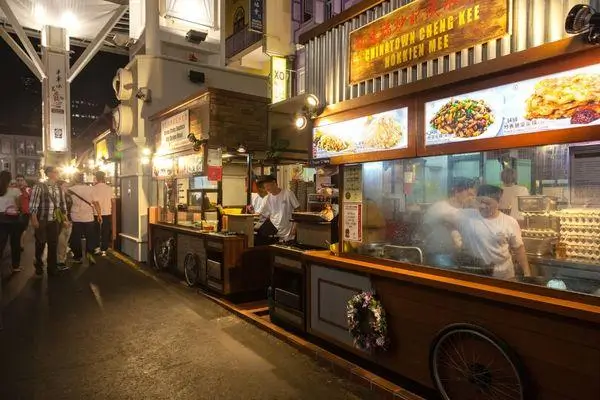
Couples may expect to spend around USD 200 per day in Singapore. For families with 2 kids, around USD 350 per day may suffice. Lastly, Solo travellers might spend a minimum of USD 118 per day.
Power Plugs and Socket Travel Guide in Singapore
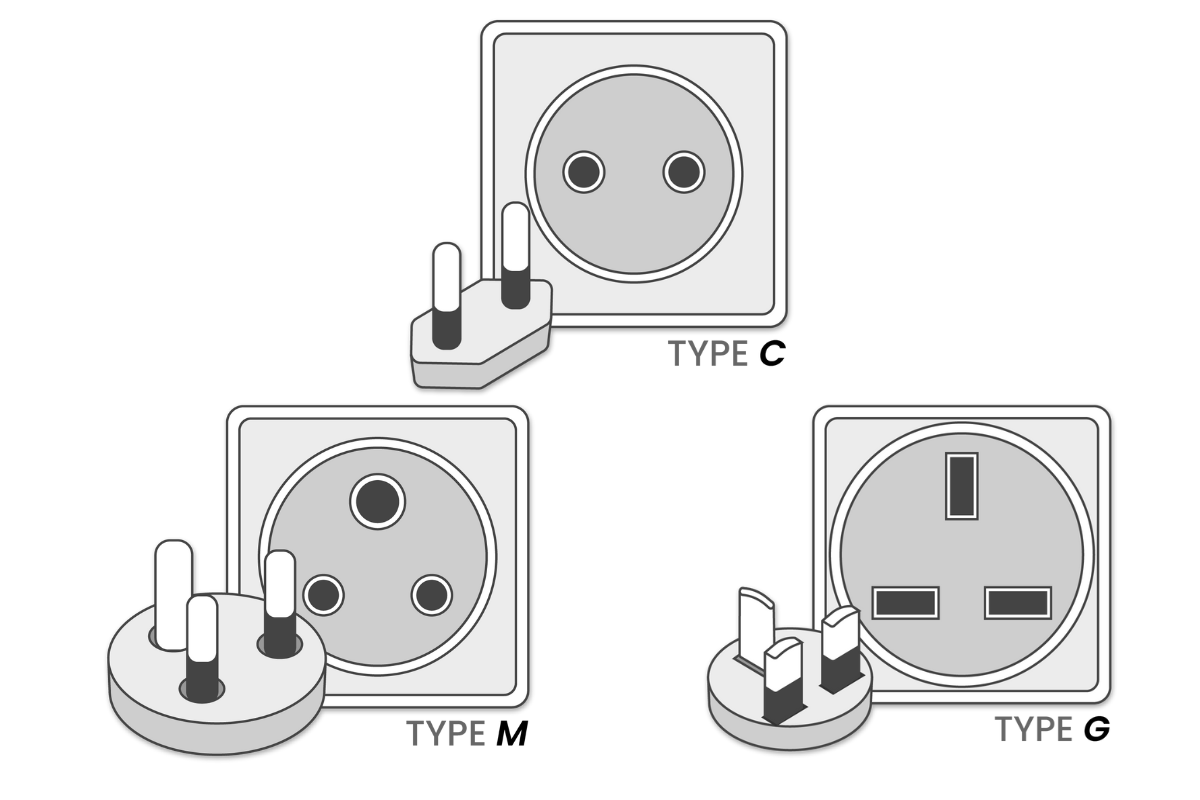
Singapore uses Type C, G, and M power plugs at 230 Volts and 50 Frequency. Bringing power plug adapters is advisable.
Getting Around in Singapore
Singapore Travel Guide to Public Transports
Singapore has a well-established public transportation system. You may get around the city via Singapore’s MRT (Mass Rapid Transit) since every attraction is a walk away from the train.
You will have to get a Singapore Tourist Pass (STP). Visit the TransitLink Ticket Office, STP Kiosks at Orchard Station and HarbourFront Station, or Changi Airport Terminals 2 and 3.
Some of your options include:
•Unlimited 1 Day for USD 10
•Unlimited 2 days for USD 16
•Unlimited 3 Days for USD 20
You can opt for a bus ride using the same STP if you’re not in a rush. They are more practical, comfortable, and offer a scenic experience. You can also use the Singapore Tourist Pass for this transit.
Are there ride-hailing or Sharing apps in Singapore?
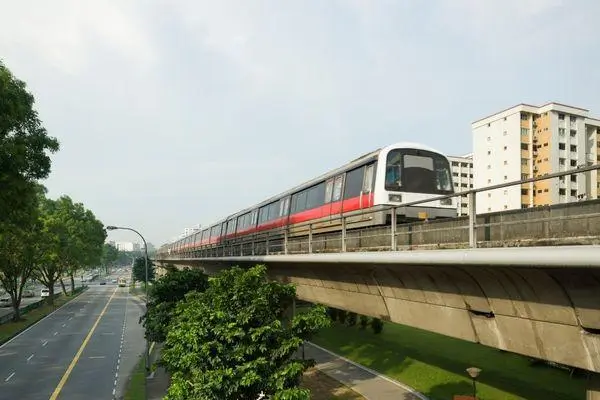
Download Grab, to hail a taxi in Singapore. Taxis in Singapore have meters to calculate rates. Depending on the taxi company, surcharges may vary. The Grab app doesn’t serve a lot of ride-sharing. The app is used for ride-hailing official city taxis.
Singapore Travel Guide – The Checklist
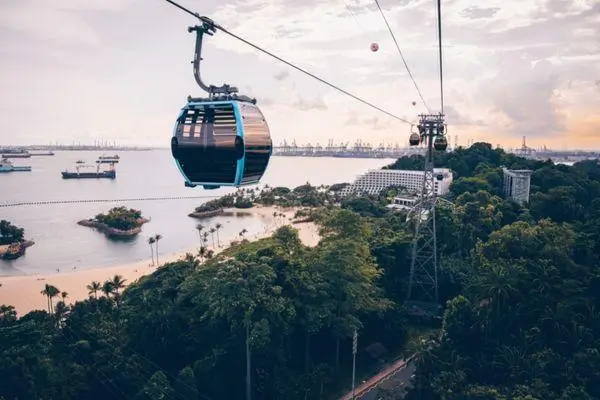
Travel Guide for Internet Everywhere in Singapore?
If you’re looking to buy yourself a SIM Card, you can easily find it in Singapore. From any terminals in Chang Airport and Travelex Currency Exchange Counters, Official Network Shops and Retailers, as well as various Convenience Stores. You will also find numerous local Mobile phone shops or Official Stores selling sim cards throughout the city. Official providers in the country include Singtel, Starhub, and M1.
You will need your passport upon purchase. It costs around 12 USD to get the best SIM package from these providers if you’re staying 7 days or less.
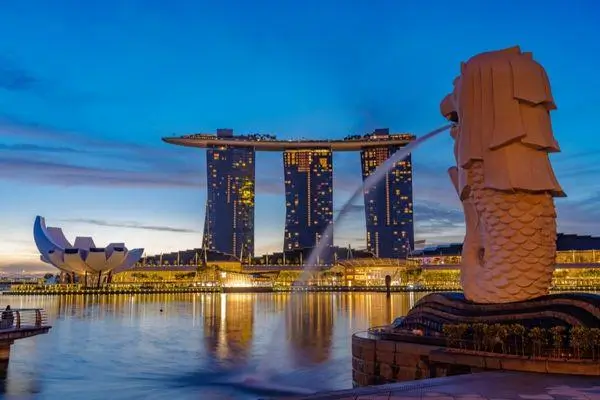
Singapore Travel Guide to Bringing Medications
You’re cannot bring chewing gums upon arrival to Singapore. Special consideration for Nicotine Gums / Oral Dental Gums because of medicinal functions. However, you cannot bring more than 3 months’ worth. In addition, you may use the following source (Health Sciences Authority – Singapore) to check if you will need approvals to bring in any regulated substances for yourself or your family members, especially if you’re carrying more than 3 months’ worth of personal medications.
As a standard, prepare preferred over-the-counter medicines. Importantly, Keep them in original containers with labels for easy identification. Firstly, try to only bring in small quantities or as necessary.

A simple first aid can include i.e. Diarrhea medicines, antacids, antihistamines, motion sickness, cough drops, and decongestants. As well as pain and fever relief, mild laxatives, bandages, and small antiseptic solutions accordingly. Lastly, don’t forget your masks and preferred sanitiser.
Moreover, Bring a doctor’s prescription for other prescriptions that you may have as needed. Similarly, check for the allowed amount of quantity depending on your stay.
Now that you’ve read this Singapore Travel Guide
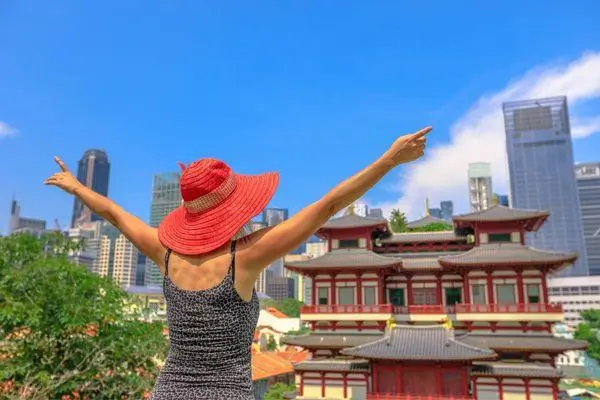
Finally, you are officially ready to travel to Singapore. Don’t forget that you’re always free to contact your AFC Representative if you have any more concerns before your departure! Lastly, We wish you safe and happy travels!
You may also be interested in our recent post: Israel Travel Guide Before You Go.
